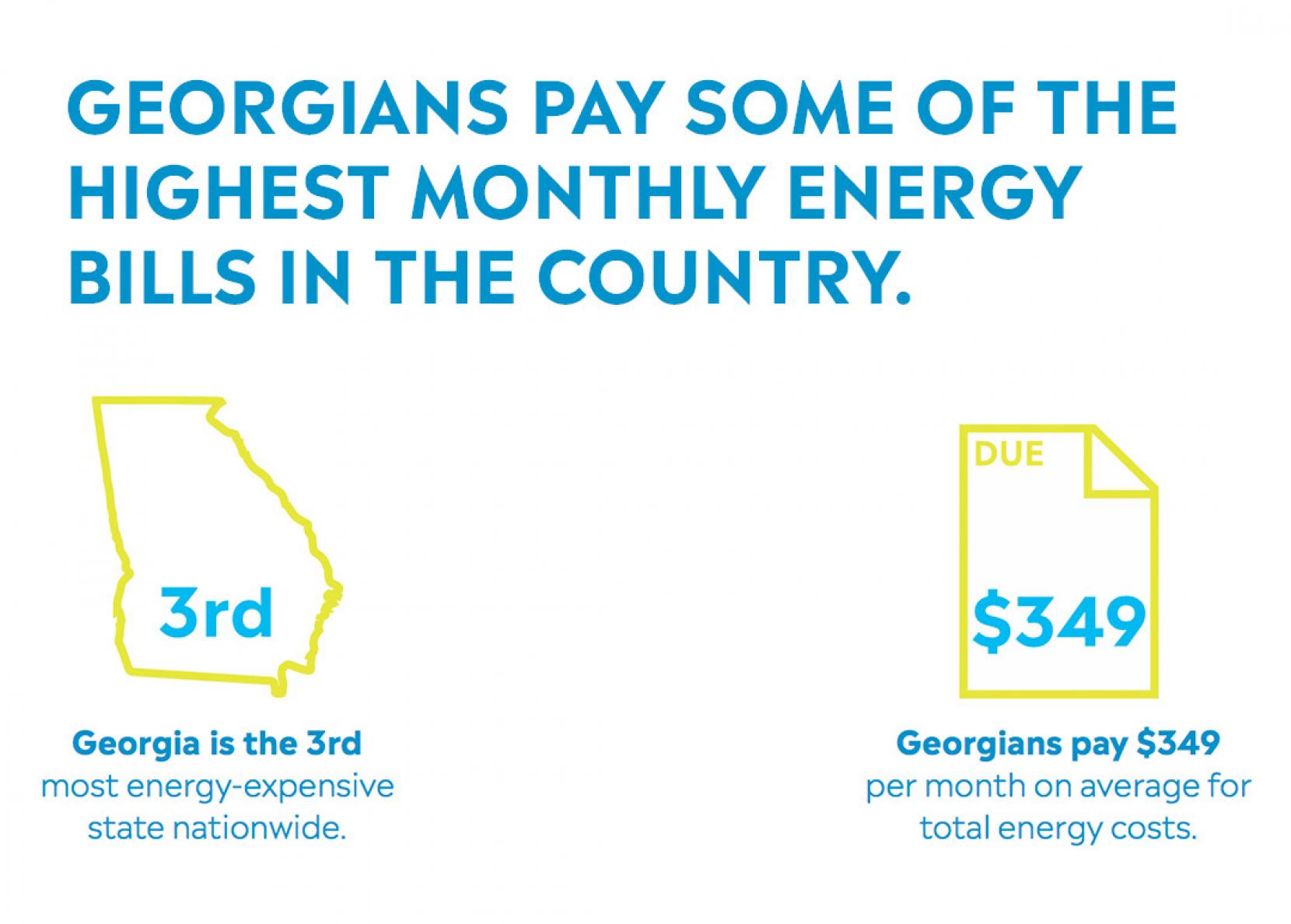Looking ahead to major energy decisions in 2019, Georgians demand Fair Energy Now
High power bills burden many Georgia families, but few know why that is or what they can do about it.
To change that, SELC, Georgia Interfaith Power & Light, and Partnership for Southern Equity have launched FairEnergyNow.org, a platform for Georgians concerned about high energy bills to make their voices heard ahead of key decisions regarding the state’s energy future.
Georgians pay the third highest monthly energy bills nationwide, shelling out $349 per month on average for total energy costs. For the millions served by the state’s largest regulated utility, Georgia Power, sky high electric bills reflect a broken policy – a system that puts utility profits above the interests of ordinary people.
With Fair Energy Now, the groups seek to restore fairness to the energy planning process by elevating Georgians’ voices so that utility interests no longer dominate discussions impacting their wallets.
We need an energy future that’s good for all of us, not just for powerful utilities,” said Nathaniel Smith, Chief Equity Officer at Partnership for Southern Equity. “Georgia’s energy planners must make decisions that put our interests first.
The coming year features two major proceedings at the Georgia Public Service Commission where energy fairness will take center stage. The first will review Georgia Power’s latest long-term plan for meeting the state’s energy needs. The so-called Integrated Resource Plan or IRP proceeding will officially kick off on January 31, 2019, and continue through the next several months.
The second, immediately following the IRP, will be the 2019 rate case, Georgia Power’s first in six years. There the five elected Commissioners will decide how much customers pay for electric service and how much profit Georgia Power may earn.

Past proceedings have resulted in decisions costing customers billions of dollars – like the Plant Vogtle expansion, Georgia Power’s long-delayed, budget-busting project. But they have also produced substantial clean energy breakthroughs, like to money-saving solar investments that have vaulted Georgia into the top ten of solar states.
Unfortunately, past IRPs have placed little emphasis on energy efficiency programs that can avoid expensive, unnecessary projects like Vogtle and help struggling families save on their power bills. Georgia remains near the bottom of states tapping into the vast energy-saving potential of efficiency programs.
We can’t keep going down the costliest route just because it’s the best for the utility’s bottom line,” said Senior Attorney Kurt Ebersbach. “Customers need more of a say in the decisions impacting their monthly bills.
While the PSC has final say over which energy resources get approved and how much customers pay for them, Georgia Power has long been the dominant voice in these discussions, reaping outsized rewards.
There’s too much at stake for this to continue to be a one-sided conversation,” said Kate Moseley, Executive Director of Georgia Interfaith Power & Light. “Our Commissioners need to hear from the ordinary folks impacted by their decisions – especially our most vulnerable communities who simply cannot afford more of the status quo.
